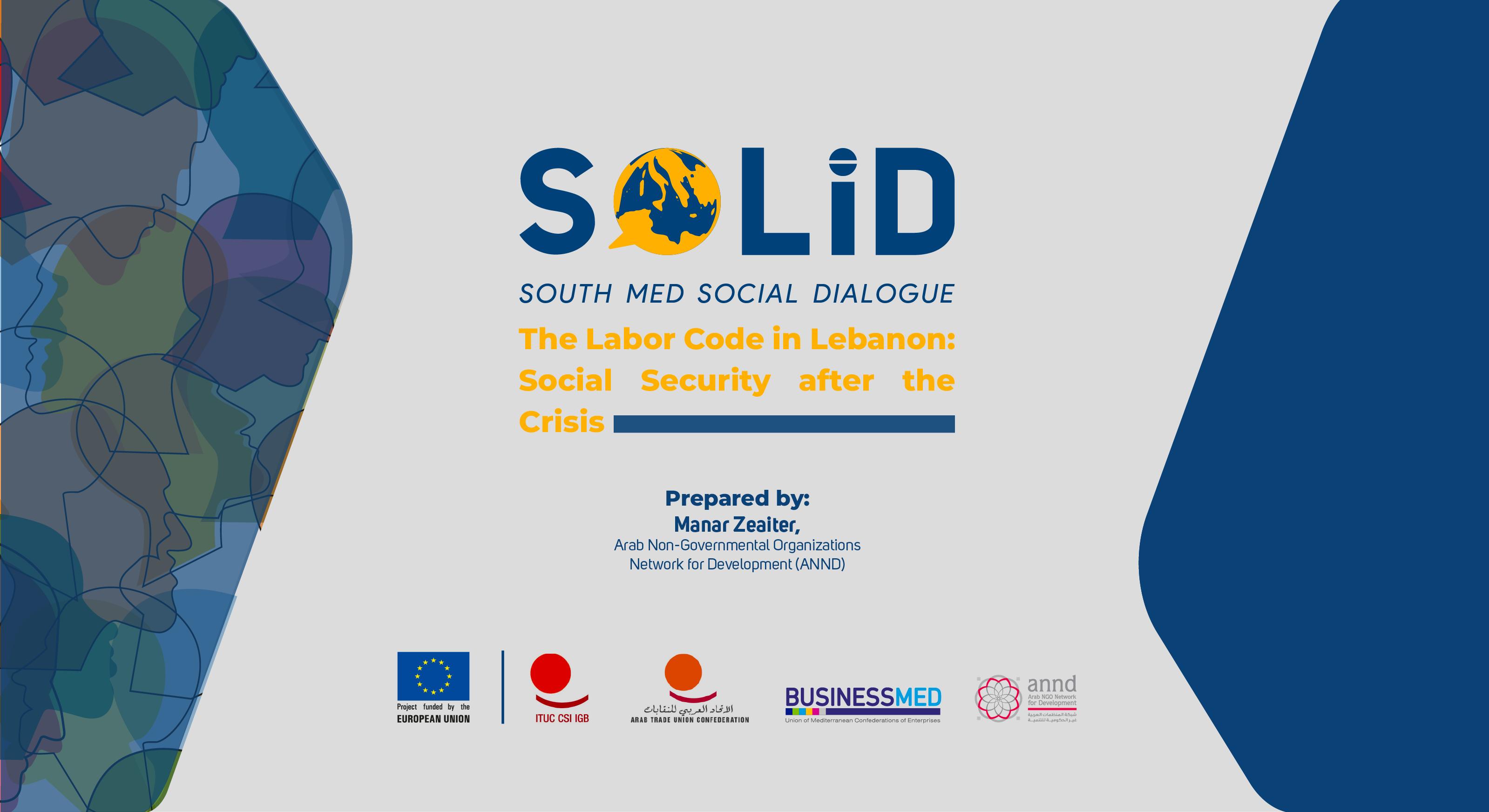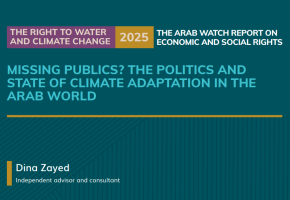
The Labor Code in Lebanon: Social Security after the Crisis

The Labor Code in Lebanon: Social Security after the Crisis - Manar Zaiter
Please click here to read the full report
Legislative reforms of Lebanon's Labor Code have always been minor and do not respond to the needs of the labor sector, mainly addressing rising youth unemployment, the continued expansion of informal labor at the expense of decent work, implementing ILO recommendations regarding the development of trade unions and workers' conditions, and enacting urgent radical reforms to revitalize arbitration boards and ensure their independence. Studies also indicate widespread disparities in workers' rights, especially low-wage workers, women, refugees, migrant workers, informal workers, and children. Furthermore, gender equality at work remains elusive despite some legislation. Labor legislation also falls short of providing equal employment opportunities and access to persons with disabilities. Another deficiency in the Lebanese labor framework concerns the sponsorship (kafala) system imposed on migrant workers. Moreover, some aspects of social protection are limited by the Labor Code, which excludes some categories of workers from its provisions. Finally, labor legislation contains fundamental violations that impede the right to organize.
Many factors influence the above-mentioned labor rights violations, most notably current labor legislation and prevailing practices by private sector employers. Stakeholder engagement with social dialogue processes is weak. Other factors are related to the country's political economy, the economic liberalization policies that seldom enhance employment or protection for workers, and the systematic efforts by the political parties in power to undermine the labor movement for decades.
These problems are currently exacerbated as Lebanon faces a severe, multifaceted crisis that threatens to permanently undermine its political, economic, financial, and social stability. Over the past decades, policies pursued by successive governments have led to an unprecedented economic, financial, and monetary decline. The so-called chronic "twin deficit" in the fiscal balance and the balance of payments has turned into a sovereign debt crisis coupled with monetary and liquidity crises and the collapse of the banking system, which has led to a severe economic contraction. The crisis has greatly affected the social environment, especially for the poor or those close to the poverty line. Its repercussions did not spare the middle class under a social protection system with a lack of funding and multiple structural defects. The situation coincided with the incapacity of the legislative, institutional, and policy structure of the labor market to adapt to emerging challenges.
According to the ILO's Regional Office for the Arab States, the conditions of the informal sector, the fragile situation of the most disadvantaged Lebanese citizens, and that of Syrian and Palestinian refugees residing in the country have worsened due to the deplorable and rapidly deteriorating social and economic conditions in the country. On May 12, 2022, the Central Administration of Statistics (CAS) in Lebanon and the ILO issued a nationwide labor force survey that notes labor underutilization, recording a significant increase from 16.2 percent in 2018-2019 to 50.1 percent in January 2022. According to the survey, the (narrowly defined) unemployment rate in Lebanon increased from 11.4 percent in 2018-2019 to 29.6 percent in January 2022, indicating that approximately one-third of the active labor force was unemployed that month. Another ILO survey found that the percentage of workers in the informal economy is very high, amounting to 77.8 percent of all workers."
Please click here to read the full report
Recent publications

